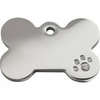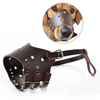Dogs have long been considered man's best friend because of their loyalty, affection and intelligence. However, not all dog breeds are equal in terms of intelligence. Certain breeds stand out for their ability to learn quickly, solve problems and adapt to different situations.
In this article we will look at which are the smartest dog breeds and what sets them apart.
Canine intelligence
Canine intelligence can be measured in different ways, but one of the most common methods is based on learning speed and ability to carry out commands. Stanley Coren, a renowned canine psychologist, compiled a list of the most intelligent dog breeds based on these criteria in his book "The Intelligence of Dogs" published in 1994.
Its list classifies breeds into three categories: highly intelligent dogs, dogs of average intelligence, and less intelligent dogs.
Very intelligent dogs
Highly intelligent dog breeds are characterized by their ability to learn new commands in less than five repetitions and to execute them correctly at least 95% of the time. Here are some examples of these breeds:
-
Border Collie
Border Collies are often considered to be the most intelligent dogs. They are energetic, agile and excellent at dog sports such as agility and herding. Their intelligence allows them to understand complex orders and solve problems quickly.
-
German shepherd
German Shepherds are known for their loyalty and intelligence. They are often used as working dogs in law enforcement and rescue services because of their ability to learn quickly and make intelligent decisions.
-
Poodle
Poodles are versatile dogs that often excel in dog sports such as obedience and agility. Their intelligence and attentive nature make them excellent companions for those looking for an easy-to-train dog.
-
Rottweiler
Although often misunderstood due to their reputation as guard dogs, Rottweilers are actually very intelligent. They are loyal and can learn complex commands quickly if properly socialized and trained.
-
Bernese Mountain Dog
Bernese Mountain Dogs are intelligent and friendly dogs. They are often used as therapy dogs because of their caring nature and ability to interact with people.
-
Chihuahua
Chihuahuas are intelligent and can be trained successfully when treated with patience and consistency. However, they can also be stubborn, requiring a positive training approach.
Dogs of average intelligence
Dog breeds of average intelligence can learn new commands in 5 to 15 repetitions and perform them correctly approximately 70 to 85% of the time. Here are some examples of these breeds:
-
Bulldog
Bulldogs are stubborn but intelligent dogs. They can be trained with patience and persistence, although they sometimes have a will of their own.
-
Golden retriever
Golden Retrievers are known for their friendly nature and ability to learn quickly. They are often used as service dogs because of their intelligence and kindness.
-
Doberman
Dobermans are intelligent and protective dogs. They can be trained to be excellent guard and companion dogs.
-
Shih Tzu
Shih Tzus are intelligent and affectionate little dogs. Although they can be a little stubborn, they are generally easy to train.
-
Beagle
Beagles are curious and intelligent dogs. They are often used in odor detection due to their excellent sense of smell.
Less intelligent dogs
Less intelligent dog breeds tend to learn new commands in more than 25 repetitions and perform them correctly less than 50% of the time. It is important to note that even less intelligent dogs can be excellent companions with proper training.
Individual intelligence
It's important to remember that canine intelligence can vary greatly from dog to dog, even within the same breed. Individual intelligence depends on many factors, including genetics, environment, socialization and training. Therefore, it is essential not to judge a dog solely based on its breed.
The Smartest Dog Breeds
The most intelligent dog breeds have remarkable learning and problem-solving abilities. However, it is important to note that canine intelligence is a complex trait that depends on many factors. All dogs, regardless of breed, have the potential to learn and adapt with proper training and positive interaction with their owners.
In the end, it's not just intelligence that matters, but also the love, patience and understanding we offer our four-legged friends.












































